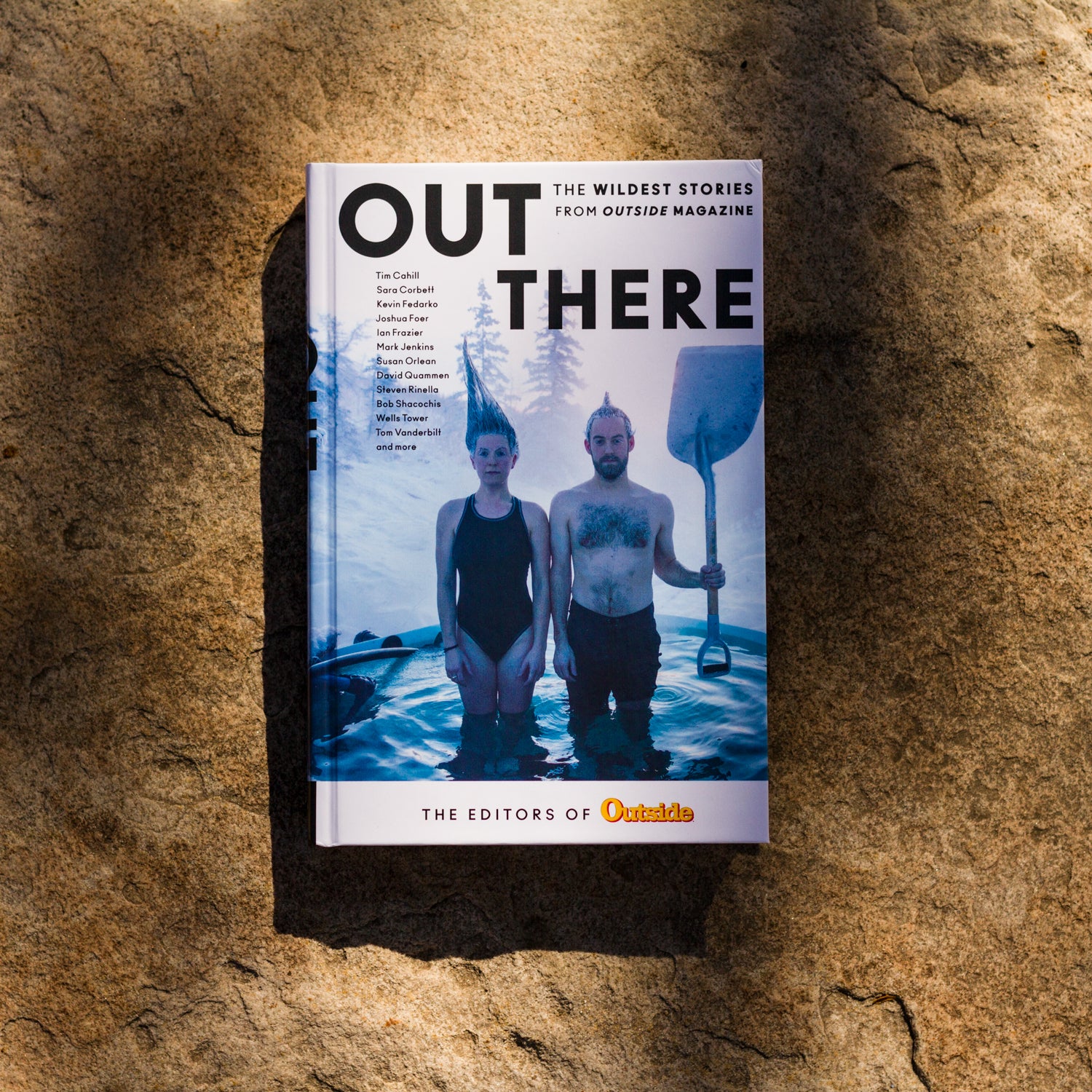“In my father’s company, trips have a tendency to spiral into disaster,” wrote Wells Tower in his 2008 ���ϳԹ��� story, “Meltdown.” “The mishaps are sometimes large and sometimes inconsequential, but the specter of calamity always rides in his sidecar.”
Tower was recounting a family trip to Greenland gone comically sideways, but he could just as easily have been describing the essential ingredients of classic ���ϳԹ��� storytelling. I could argue that the magazine, now forty years old, established its reputation in the world of literary journalism by chronicling more serious adventures, ones involving legendary explorers clashing with nature’s harshest realities—frequently ending in real, not metaphorical, disasters. Examples include John Krakauer’s “Into Thin Air” and Sebastian Junger’s “The Storm,” both of which became bestselling books (the latter under the title ) and Hollywood movies. Those dark tragedies are a key part of the magazine’s legacy, but longtime readers have come to understand that ���ܳٲ������’s true gift is in chronicling misadventure.
That’s the common thread among the stories we’ve selected for , those memorable reads that begin with the promise that, even if no one’s life is necessarily hanging in the balance, something may go horribly awry at any moment, and documenting that misfortune will inevitably yield rich comedic material or a surprisingly poignant moment. Or sometimes both. A woman with 700 dogs trying to fix a broken heart. A BASE jumper who can’t stop himself from upping the ante. A bike advocate who cycles three-and-a-half hours—each way—to work. You get the idea.
I’ll confess that I didn’t always appreciate this storytelling approach. Early on in my tenure, longtime ���ϳԹ��� contributing writer McKenzie Funk sent in a strange pitch about “confluence hunters,” a new breed of adventurers who use GPS to tick off remote points on the globe where major points of longitude and latitude intersect. My initial reaction to these people? Get a life. There was no way ���ϳԹ��� was going to endorse such a trivial pursuit. But as our wise editorial director, Alex Heard, pointed out, covering this scene didn’t have to mean tacit approval of the endeavor. He convinced me that Funk would employ a deft touch; by profiling the top confluence hunter, Greg Michaels, and making an earnest effort to take him seriously, he’d deliver a hilarious story. He was right. Funk spent a week chasing far flung confluences in Bolivia with Michaels. He witnessed the absurdity, but by embracing his subject’s passion, Funk experienced the best qualities of misadventure, and readers came away with a grudging respect for Michaels’s obsession when they read “Because It’s There. (Sort of ).”
Since then, I’ve realized that obsession is one of several reliable catalysts for misadventure. Plenty of elite athletes obsess over goals, and we frequently chronicle them. But there are also those mere mortals among us, regular Joes with day jobs and family obligations, who get fixated on some obscure pursuit they can’t let go of. Take, for example, Dallas Trombley, a young man from Albany, New York, who we profiled in 2011. Trombley had spent $200,000 of his own money to build a series of doomed watercraft aimed at taking him down the Hudson River for reasons he can’t quite articulate. (You’ll find him here in “Watership Down Down Down Down Down and (Alas) Down Again.”) Or Brit Eaton, the man you’ll encounter in “The Brotherhood of the Very Expensive Pants,” a sort of postmodern 49er who scours ghost towns and abandoned barns across the West looking for vintage denim he then sells for a small fortune to fashion designers in New York. Or even one of our own, former ���ϳԹ��� editor Kevin Fedarko, who chucked a magazine career to pursue his dream of being a Grand Canyon raft guide in his 40s.
His memoir of that pursuit, “They Call Me Groover Boy,” chronicled a tragicomic apprenticeship that required several seasons of manning the poop boat.
Even if no one’s life is necessarily hanging in the balance, something may go horribly awry at any moment, and documenting that misfortune will inevitably yield rich comedic material or a surprisingly poignant moment.
We’ve also learned to court misadventure by assigning travel stories in highly undesirable places. As a kid, I still remember the shocking headlines about the nuclear-reactor meltdown in Chernobyl in 1986. Once that disaster fell out of the news cycle, the general public largely forgot about it. So, what had happened? In 2009, we sent Henry Shukman on a tour of the abandoned city (“Chernobyl, My Primeval, Teeming, Irradiated Eden”), where he encountered a still-radioactive wasteland devoid of human life. More surprising: the quarantined zone had miraculously transformed itself into Eastern Europe’s most bizarre animal sanctuary, full of wild genetic mutations.
Over the years we’ve sent writers to a spa offering vaginal steams, a Siberian city terrorized by bears, the Mississippi River at historic flood levels, the Australian Outback with a menacing kangaroo hunter named Cujo, and an Antarctic research station where cabin fever has driven many a scientist mad. You don’t want to visit these places. Still, reading the experiences of our intrepid reporters, you find yourself exploring odd corners of the world from your armchair—and thankful for the vicarious romp.
The third leg of the misadventure stool is the world of fringe athletics. ���ϳԹ��� writers have a unique ability to uncover obscure pursuits that will never reach the pages of mainstream sports sections. To report on the surprising popularity of Quidditch, an earth-bound adaptation of the sport featuring flying broomsticks in the Harry Potter series, Eric Hansen assembled his own squad and entered the World Championships in New York. (They lost, as you’ll discover in “Quoosiers,” but readers definitely win.) We’ve also covered competitive water-sliding, Mongolian horse racing, and the world championships of free diving. Unlike the others, the latter event is definitely not a source of belly laughs. In fact, it’s terrifying, as demonstrated by one of my all-time favorite story introductions: “Junko Kitahama’s face is pale blue, her mouth agape, her head craned back like a dead bird’s,” writes James Nestor. “Through her swim mask, her eyes are wide and unblinking, staring at the sun. She isn’t breathing.”
Acknowledging the importance of our secret ingredients for misadventure, we’ve used them to organize this book. In the first section, “To Hell and Back,” you’ll find journeys to decidedly undesirable places. This is followed by “Let the Games Begin,” featuring the fringe athletes and fitness freaks. And in “Consumed,” you’ll meet our favorite characters haunted by ill-advised dreams. Beyond that, what ties this collection together are the incredible voices you’ll encounter. The story assignments I’ve described are simply raw material; only in the hands of legendary ���ϳԹ��� contributors like David Quammen, Tim Cahill, Susan Orlean, Wells Tower, Christopher Solomon, Patrick Symmes, Taffy Brodesser-Akner, Nick Paumgarten, and many others are we gifted with the alchemy that turns these subjects into literary gold. I am incredibly thankful to all our writers. Their original voices have kept us in business for forty years, and if we are to survive another forty, that’s not going to change.
Finally, we wouldn’t be here without our loyal readers. When an ���ϳԹ��� story misses the mark, you let us know it, and for that we are seriously indebted. Your passion for great storytelling is what motivates us each month.


